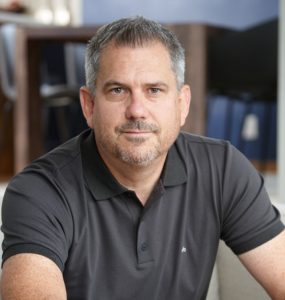During the past quarter, the best performing asset classes were real estate and U.S. large value stocks. The following chart shows the 3-month, 3-year, and 10-year performance of many DFA funds (representing different asset classes) compared to the S&P 500 Index:
Market Returns for the period ending June 30, 2016
| DFA Fund / Index | 3 Month Return | 3 Year Return* | 10 Year Return* |
| S&P 500 Index | 2.46 | 11.66 | 7.42 |
| DFA U.S. Large Value | 3.97 | 9.56 | 6.27 |
| DFA U.S. Small | 1.69 | 8.28 | 7.44 |
| DFA U.S. Small Value | 1.10 | 6.01 | 5.47 |
| DFA Real Estate (REITs) | 6.67 | 13.64 | 7.12 |
| DFA Int’l Large | -0.30 | 1.99 | 1.86 |
| DFA Int’l Large Value | -0.90 | 0.08 | 0.74 |
| DFA International Small | -1.13 | 6.53 | 4.26 |
| DFA Int’l Small Value | -3.16 | 6.01 | 3.92 |
| DFA Emerging Markets Core | 2.22 | -0.16 | 5.27 |
| DFA 5-Year Global Bonds | 1.19 | 2.90 | 3.84 |
| DFA Inflation Protected Bonds | 1.73 | 2.52 | —- |
*Note: Returns for periods greater than 1 year are annualized. Top 3 returns are in bold.
Global stock markets have demonstrated surprising resilience so far this year. They were hit by a fast and steep correction at the beginning of the year and fully recovered within several months. Late in June, the British vote to leave the European Union caused a steep two-day selloff, but over the next three trading days U.S. stocks recovered almost 80% of their losses, while Britain’s stock market recovered all of its losses.
We think that when compared to other readily-available investments, stocks remain the better choice. They certainly look better than short-term bonds, whose interest rates have remained at near zero since the 2008 financial crisis. In order to get a 2% yield, one must commit to a 30-year U.S. Treasury Bond. Yet the stocks that make up the Standard & Poor’s 500 Stock Index collectively yield a little over 2%. What’s the difference? Many companies regularly boost their dividends, while the interest rate on a U.S. government security—as with most corporate and government bonds—is fixed for life. And stocks have the ability to grow in price, offering capital gains to investors who hold them long enough.
The recent “Brexit” vote has convinced the majority of bond market analysts that the Federal Reserve Board will not raise interest rates again until at least 2017. Other international central banks may even cut rates further. That means bonds and bank deposits will continue to pay investors next to nothing. We think you should keep enough money in the bank for emergencies, current spending, and planned expenditures over the next year or so, but nothing more. The rest should be invested in a diversified portfolio so that you can take advantage of the world economy’s long-term growth.
Where will the markets head during the last six months of the year? Forecasts are worthless, but it is worth noting that this is an election year. On average, the two best years to invest are the year prior to, and the year of, a U.S. presidential election. That is no guarantee of year-end profits in any particular election year, but so far 2016 seems to be working out well. One note: some of you have asked whether you should temporarily sell your investments in case Donald Trump is elected president. We say no. Elections are political events and political events typically have only short-term effects on the markets (consider the Brexit). This is not an endorsement or a criticism of Trump, but the world economy is too large and dynamic to be derailed by either Trump or Hillary Clinton. In fact, any change made by any political group to trade policies, work rules, regulations, or financial policies will energize businesses to innovate and do whatever is necessary to maintain and increase profits. For instance, we suspect that international companies have been assessing the potential effects of the Brexit for many months now and are already doing whatever is necessary to thrive under any new conditions it creates.
We will do the same—monitoring and rebalancing your portfolio when necessary and tweaking our investment models when appropriate.
Just a reminder that we’ve opened our doors to a wide range of clients—eliminating our asset minimums. If you have friends or family who may need financial advice, there is a very good chance that we can help them, no matter where they live or what their assets are. We are now offering a 20% discount off our “base fee” for family members of our clients. We care about you and your family, and we want to make it easy for your family members to get started on the path to financial freedom.
As always, please don’t hesitate to call or email if you want to discuss something or you’re worried about the markets—that is what we’re here for.
Enjoy the rest of your summer!
About Christopher Jones
Christopher Jones is the Founder and President of Sparrow Wealth Management, a fee-only financial planning and investment management firm. Before entering the investment field, Chris was a management consultant for Deloitte Monitor. He graduated summa cum laude from Brigham Young University with a B.S. in Economics and a minor in Business Management.



